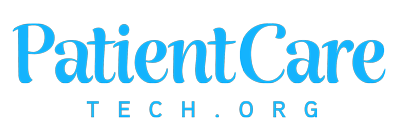
The Importance of Communication Skills in Patient Care
In the dynamic world of healthcare, where compassion and empathy are as vital as medical expertise, effective communication skills stand as the cornerstone of quality patient care. Whether it’s conveying important medical information, providing emotional support, or fostering trust and collaboration within the healthcare team, strong communication skills are essential for delivering patient-centered care and achieving positive outcomes. In this blog, we’ll explore the significance of communication in patient care and offer strategies for success in honing these invaluable skills.
Building Trust and Rapport
Effective communication is the bedrock of trust and rapport between patients and healthcare providers. By listening actively, speaking with empathy, and demonstrating genuine concern for patients’ well-being, healthcare professionals can establish strong connections and build meaningful relationships with those under their care. Trusting relationships not only enhance patient satisfaction but also contribute to better treatment adherence, improved outcomes, and overall patient satisfaction.
Enhancing Patient Understanding
Clear and concise communication is essential for ensuring that patients understand their diagnosis, treatment options, and care plans. Healthcare professionals must communicate medical information in a way that is easily understandable to patients of diverse backgrounds and levels of health literacy. Using plain language, visual aids, and interactive techniques can help simplify complex concepts and empower patients to make informed decisions about their health.
Providing Emotional Support
In times of illness or distress, patients often seek more than just medical expertise – they crave empathy, compassion, and emotional support. Effective communication allows healthcare providers to acknowledge patients’ feelings, validate their concerns, and provide reassurance and encouragement during challenging times. By creating a supportive and compassionate environment, healthcare professionals can ease patients’ anxieties, enhance their coping abilities, and promote healing and recovery.
Fostering Collaboration within the Healthcare Team
Communication skills are not limited to interactions with patients – they also play a crucial role in fostering collaboration and teamwork within the healthcare team. Effective communication enables healthcare providers to share vital information, coordinate care plans, and address patient needs seamlessly. By promoting open dialogue, active listening, and mutual respect among team members, healthcare organizations can enhance efficiency, reduce errors, and improve patient outcomes.
Strategies for Success
To enhance communication skills in patient care, healthcare professionals can:
- Practice active listening and empathy.
- Use clear and concise language.
- Adapt communication style to meet the needs of individual patients.
- Use nonverbal cues to convey empathy and understanding.
- Seek feedback and self-assessment to identify areas for improvement.
- Engage in communication training and professional development opportunities.
Empowering Through Communication
In the ever-evolving landscape of healthcare, effective communication stands as a powerful tool for healing, connection, and empowerment. By honing their communication skills, healthcare professionals can build trust, enhance understanding, provide emotional support, and foster collaboration within the healthcare team. As we strive to deliver patient-centered care and achieve positive outcomes, let us recognize the transformative impact of communication and commit to continually improving these invaluable skills in the service of those we care for.


